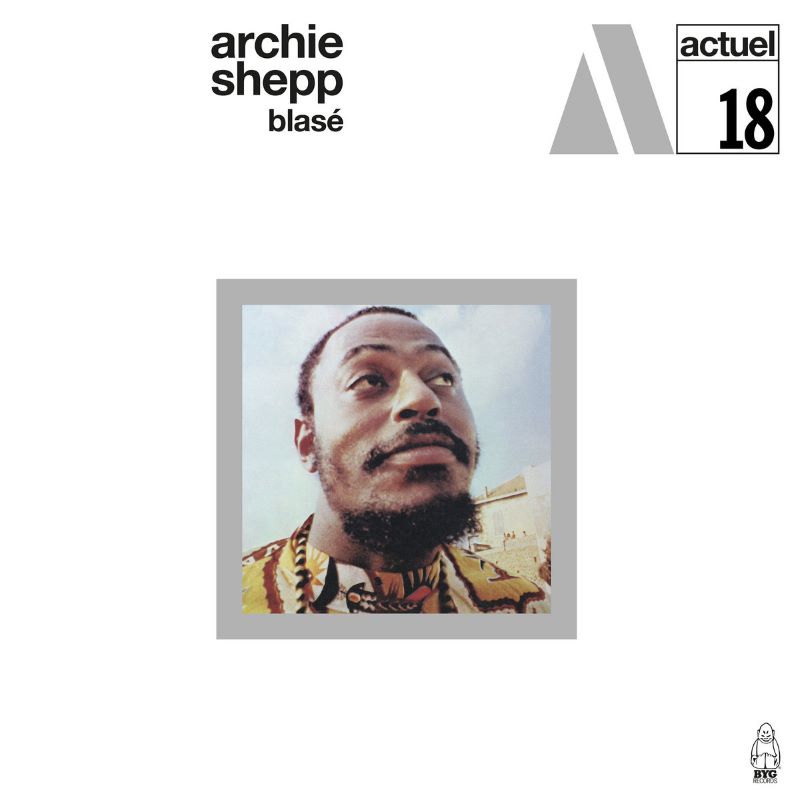Friday, March 25, 2022
Archie Shepp - Blasé (March 25, 2022 BYG Records)
Thursday, November 18, 2021
New York Contemporary Five - Copenhagen 1963 Revisited (Hat Hut Records)
Monday, March 1, 2021
Archie Shepp & Jason Moran - Let My People Go (2021)
"Words, sounds, speech, men, memory, thoughts, fears and emotions—time—all related…all made from one…all made in one." —John Coltrane, 1964
There comes a time when musical expression flows directly from the soul—unimpeded, unfiltered. Unmasked. A point when the modes of expression—the way a person plays and sings, the way he walks and talks and even wears his hat—are all on the same wavelength, all drawing from the same inner spirit. Their music reveals not just who the individual musician might be, but reflects who we all are. Message, music, and identity weave together into one.
Archie Shepp, more than sixty years into a career of supreme dedication, has devoted a lifetime to this idea of spiritual singularity. His vast discography is peppered with moments of deep connection: small ensembles and big bands. Significant studio projects and equally historic live performances, as sideman, leader, and very often, collaborator.
A special thread connects the saxophone/piano duets and makes them standout, Shepp’s meetings with such greats as Horace Parlan, Joachim Kühn, Mal Waldron, Jasper Van’t Hof, and Abdullah Ibrahim (back when he went as Dollar Brand.) Four hands, two instruments, one common statement. Shepp has found a way to consistently excel in this space, as a speaker and as a listener. Much of it has to do with the intensity of the interaction between the two voices, how that space allows the dialogue to stand out. Shepp, in all these instances, has elevated it further: developing these conversations with just the right amount of form and freedom.
Neither Shepp nor Jason Moran are old, and neither are they young—except in spirit and delight. Moran is the more recent arrival, and he’s no new kid on the block. They carry age and experience in their playing as much as a youthful fascination with the songs and forms that define this tradition we call jazz. Let My People Go is the timely title of this collection, but when has that message not been relevant? Now, sadly, as ever.
This is their first recording together, a gathering of duet performances from 2017 and 2018, chronicling a relationship that can sound like the intimate huddling of two old friends: whispered asides, excited exclamations, utterances coinciding with practiced harmony, followed by bursts of laughter. “Ain’t misbehavin’!” cries out one. “Waahhhh!!”, says the other. (That’s really Shepp speaking both parts—but you get the idea.)
Monday, October 16, 2017
Lucky Peterson - Tribute To Jimmy Smith (JAZZ VILLAGE 2017)
Lucky Peterson concentrates here on the Hammond B-3 organ, his favorite instrument whose warm tone refers to the songs of gospel and the hymns of soul music. To pay tribute to his mentor Jimmy Smith, he surrounded himself with virtuoso partners among whom stands the prodigy guitarist Kelyn Crapp. Throughout the album, Lucky Peterson is the repository of a long musical history rooted in the blues but very open; we find the pulsation of jazz, the groove of rhythm'n'blues and the energy of rock'n'roll.
After the remarkable The Son of a Bluesman and Live in Marciac, the new album of the American bluesman Lucky Peterson at Jazz Village is already an important and indispensable disc in his lush discography. The reason for this is twofold. First of all, Lucky Peterson plays exclusively with the Hammond B-3 organ and favors instrumental pieces, and then proposes a particularly compact instrumentation (a trio orgueguitare-drums, sometimes with the addition of a trumpet or a saxophone) through a repertoire clearly oriented towards jazz, in tribute to the great organist Jimmy Smith, with classics from his repertoire (The Sermon, The Champ), and many other surprises ...
This jazz is tinged with soul and of blues. Music that groove and could be called "jazz'n'blues," as in the old days of the vinyls of Blue Note. From 1956 to 1963, Jimmy Smith was also one of the locomotives of this label, knowing how to deploy with force and elegance swingups tracklistings resembling trains undulating in the night.
And it is precisely by the energetic and enthralling Night Train of Jimmy Forrest that starts this album, with the presence in guest of the French trumpeter Nicolas Folmer. A piece that Jimmy Smith recorded in 1966 for Verve with the majestic guitarist Wes Montgomery, and who in this new version, as well as on the whole album, sees Lucky Peterson entrust the guitar to a musician who knows how to sound its strings between jazz and funk, in the line of the great Wes ...
This is a young guitarist from San Francisco named Kelyn Crapp who, given his talent and sense of feeling, will not remain long unknown.






